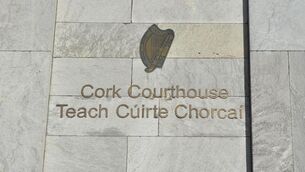Likely murder-accused suffered psychotic episode due to 'long term effect' of cannabis use

Clinical toxicologist told court cannabis is associated with psychosis and schizophrenia in 'at-risk patients'
It is likely a murder accused husband was not under the influence of cannabis when he killed his wife and that he suffered a psychotic episode due to "the long term effect of chronic cannabis exposure", a toxicologist has told his trial.
James Kilroy, 50, has pleaded not guilty by reason of insanity to murdering occupational therapist Valerie French Kilroy, 41, at their rural home at Kilbree Lower, Westport, Co Mayo, between June 13, 2019 and June 14, 2019.











